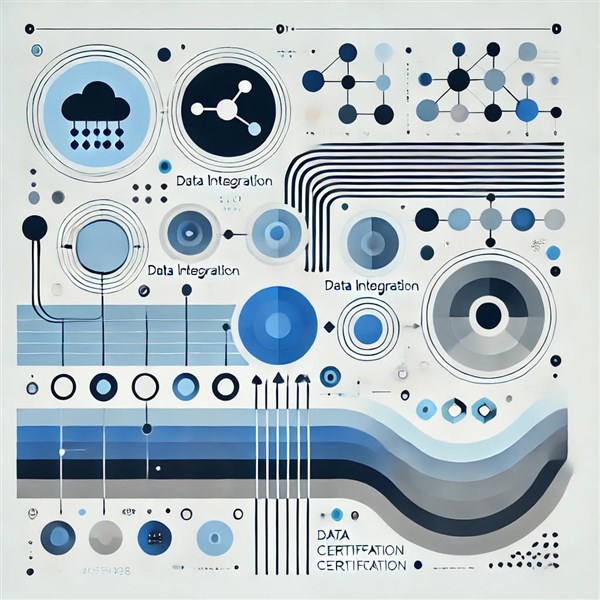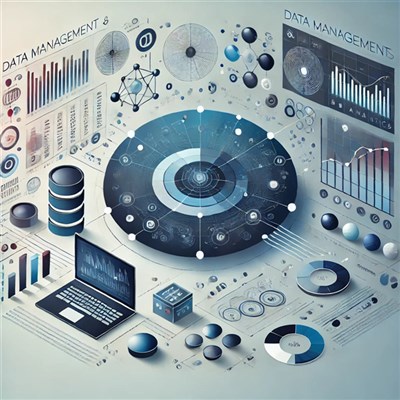
As organizations grow increasingly reliant on data to drive decision-making, the demand for professionals skilled in data integration continues to rise. Data integration is a cornerstone of effective data management, ensuring that disparate data sources combine seamlessly to provide valuable insights. A Data Integration Certification Program equips professionals with the skills necessary to manage, transform, and integrate data across various platforms and environments. This blog will dive into the key skills acquired through a certification program, highlighting how each can benefit your career in data management and analytics.
Skills You’ll Learn in a Data Integration Certification Program
1. Understanding of ETL (Extract, Transform, Load) Processes
What is ETL?
ETL, short for Extract, Transform, and Load, is a foundational process in data integration. It involves extracting data from different sources, transforming it into a compatible format, and loading it into a data warehouse or other storage solutions. ETL is essential for consolidating data and making it usable for analysis.
Skills Gained Through Certification
A Data Integration Certification Program typically covers:
- Data Extraction: Learning to retrieve data from various sources, including databases, APIs, and flat files.
- Data Transformation: Applying rules and functions to convert data into a format that meets the destination’s requirements.
- Data Loading: Moving transformed data to its final destination, such as a data warehouse.
Career Benefits
Understanding ETL processes is crucial for roles like Data Engineers, Integration Specialists, and Data Analysts. Mastery of ETL enables professionals to build efficient data pipelines, handle data quality issues, and support real-time analytics.
2. Data Warehousing Skills
The Role of Data Warehousing
A data warehouse is a centralized repository that stores data from multiple sources, optimized for reporting and analysis. It allows organizations to manage large volumes of historical data and is a key component of data integration.
Skills Gained Through Certification
Certification programs teach professionals how to:
- Design Data Warehousing Solutions: Understanding how to structure data warehouses to ensure high performance and scalability.
- Data Modeling: Building logical and physical data models to represent data relationships and structures within the warehouse.
- Managing Data Flows: Developing strategies to efficiently move data from source systems to the data warehouse, maintaining data accuracy and consistency.
Career Benefits
Proficiency in data warehousing is valuable for professionals aiming to work in roles such as Data Architects, Database Administrators, and Business Intelligence Developers. These skills allow you to handle complex data storage needs, ensuring that data is accessible, secure, and optimized for analysis.
3. Cloud Integration and Data Management
Why Cloud Integration Matters
With the growing adoption of cloud technologies, integrating cloud-based data systems with on-premises data environments has become essential. Cloud integration allows organizations to harness the power of both environments, making data accessible and manageable from anywhere.
Skills Gained Through Certification
Key cloud integration skills include:
- Understanding Cloud Platforms: Familiarity with leading cloud services, such as AWS, Azure, and Google Cloud.
- Cloud Data Management: Developing strategies to move and manage data within and between cloud platforms.
- Hybrid and Multi-Cloud Environments: Learning to work with data that spans multiple cloud providers or a mix of cloud and on-premises solutions.
Career Benefits
Cloud integration skills are in high demand as organizations increasingly move their data to the cloud. Professionals with these skills can pursue roles in cloud engineering, data migration, and cloud architecture, working on cutting-edge projects that drive digital transformation.
4. Data Quality and Governance
The Importance of Data Quality and Governance
Data quality ensures that data is accurate, complete, and reliable, while governance establishes policies and procedures to manage data responsibly. Effective data integration requires both quality and governance to maximize data's value and ensure compliance with regulations.
Skills Gained Through Certification
Certification programs teach professionals how to:
- Implement Data Quality Controls: Developing mechanisms to validate, clean, and maintain data quality.
- Data Profiling: Analyzing data to understand its structure, content, and quality.
- Data Governance Policies: Creating and enforcing policies that define data usage, access, and security standards.
Career Benefits
Data quality and governance are crucial in regulated industries, such as finance and healthcare, where data accuracy and compliance are non-negotiable. These skills enhance your suitability for roles in data stewardship, compliance, and governance, making you a valuable asset to organizations focused on data integrity.
5. Mastery of Data Integration Tools and Platforms
Tools Commonly Used in Data Integration
Data integration often involves using specialized tools and platforms to automate and manage workflows. Common tools include Informatica, Talend, Apache NiFi, and Microsoft SQL Server Integration Services (SSIS).
Skills Gained Through Certification
Certification programs provide training in:
- Tool-Specific Functions: Learning how to configure and use tools like Informatica and Talend for data integration.
- Workflow Automation: Developing scripts and configurations to automate data movement and transformation processes.
- Data Mapping: Mapping fields from source to destination systems, ensuring data compatibility.
Career Benefits
Proficiency in data integration tools is essential for technical roles like Data Integration Specialist, Data Engineer, and ETL Developer. Certification enables you to quickly adapt to new tools and technologies, making you a flexible and adaptable professional in the data field.
6. Data Transformation and Data Mapping Skills
What are Data Transformation and Mapping?
Data transformation involves converting data from one format to another, while data mapping establishes relationships between data fields in different sources and targets. Both are essential for ensuring that integrated data is compatible and usable.
Skills Gained Through Certification
Certification programs provide in-depth training on:
- Data Cleansing and Transformation Techniques: Learning methods for converting, enriching, and standardizing data.
- Data Mapping: Using tools and methods to map data fields across different data systems.
- Handling Complex Transformations: Managing data type conversions, combining fields, and other complex transformations.
Career Benefits
Transformation and mapping skills are valuable for building seamless data pipelines, an essential aspect of data engineering. These skills enhance your ability to ensure data compatibility, supporting roles in ETL development, database management, and systems integration.
7. Data Synchronization and Real-Time Integration
The Need for Real-Time Data Integration
With the rise of real-time data applications, synchronizing data across systems in real-time has become a priority. Real-time integration ensures that data is up-to-date and consistent across all platforms.
Skills Gained Through Certification
In a data integration certification program, you will learn:
- Real-Time Data Processing: Setting up data pipelines that process and update data in real-time.
- Data Synchronization: Ensuring data consistency and availability across multiple systems.
- Event-Driven Architectures: Using event triggers to initiate data processes, essential for real-time integration.
Career Benefits
Real-time integration skills are increasingly sought after in industries like e-commerce, finance, and IoT. These skills prepare you for high-demand roles in data engineering and systems architecture, where real-time data accessibility is crucial.
8. Problem-Solving and Analytical Skills
Solving Complex Data Challenges
Data integration often involves resolving complex data challenges, such as handling duplicate data, managing data discrepancies, and ensuring data compatibility across systems.
Skills Gained Through Certification
Certification programs foster problem-solving and analytical skills through:
- Data Reconciliation Techniques: Learning methods to match and merge data from different sources.
- Root Cause Analysis: Identifying and addressing the underlying causes of data inconsistencies.
- Critical Thinking: Developing analytical skills to troubleshoot and resolve integration issues efficiently.
Career Benefits
Problem-solving skills are valuable in all data integration roles, as they enable you to handle unexpected issues and optimize processes. These skills are beneficial for roles like Data Quality Analyst, Systems Analyst, and Integration Consultant.
9. Data Security and Compliance Knowledge
The Role of Data Security in Integration
Data security is critical in integration processes, especially when handling sensitive information. Ensuring compliance with data protection regulations is a key component of data integration.
Skills Gained Through Certification
In a certification program, you’ll gain knowledge on:
- Data Encryption: Securing data during transfer and storage.
- Access Control: Defining roles and permissions to restrict data access.
- Regulatory Compliance: Adhering to industry standards such as GDPR, HIPAA, and CCPA.
Career Benefits
Security and compliance are increasingly important in data roles, particularly for organizations that handle sensitive data. Certification in data security and compliance can qualify you for specialized positions in data governance and regulatory compliance.
Conclusion
A Data Integration Certification Program equips you with a broad range of skills essential for managing and integrating data in today’s data-driven world. From ETL and data warehousing to cloud integration and real-time data processing, these skills not only enhance your technical expertise but also prepare you for various high-demand roles in data engineering, architecture, and management.
With data integration skills, you’ll be ready to take on challenging projects, solve complex data issues, and drive meaningful results for your organization. If you're considering a career in data, a certification in data integration is an invaluable asset that can set you on a successful and rewarding path.
Pursuing a data integration certification program is a significant step towards building a successful career in data management. It equips you with the skills necessary to manage and integrate data effectively.
At Koenig Solutions, we offer top-quality data integration training courses designed to equip you with these essential skills. Our courses are delivered by experienced trainers and tailored to meet individual and organizational needs.
Enroll in our data integration course today and take a step towards a rewarding career in data integration.







COMMENT